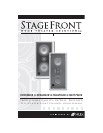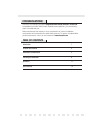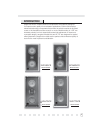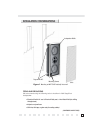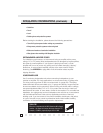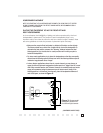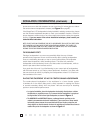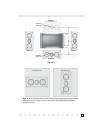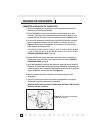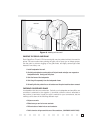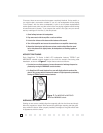
4
INSTALLATION CONSIDERATIONS (CONTINUED)
■ Phillips screwdriver set
■ Cable ties
■ Pencil
■ Level
■ Rubber gloves and protective eyewear
Before starting the installation, please observe the following precautions:
■ Turn off all system power before making any connections
■ Always wear protective eyewear when using tools
■ Make sure hands are clean before installation
■ Wear gloves when working with fiberglass insulation
RECOMMENDED AMPLIFIER POWER
For satisfactory performance, we recommend using an amplifi er with a power
rating of 15 to 125 watts. Most loudspeakers are not damaged by large amplifi ers,
but rather by small amplifi ers. If your system is playing loud music, a small
amplifi er will run out of power very quickly and can create damaging “clipping”
distortions. A more powerful amplifi er will play at the same volume without
distorting. See OPERATION on page 11 for more information about amplifi er
clipping distortion.
LOUDSPEAKER WIRE
Use 2-conductor loudspeaker wire when connecting loudspeakers to your
receiver or amplifi er. For most applications, we recommend using 16-gauge wire.
For wiring runs longer than 80 feet, we recommend 14-gauge wire. The spring-
loaded terminals will accommodate up to 12-gauge wire directly. Larger sizes can
be accommodated via pin connectors. When running wire inside walls or ceilings,
use special jacketed cable (CL-2 or CL-3) to protect the wire and to meet local
electrical and fi re codes. In some areas, conduit is also required. For a trouble-free
installation, low-voltage wire such as loudspeaker wire must be run in accordance
with the National Electrical Code and any applicable provisions of the local
building code. If you are unsure of the correct installation techniques, wire jacket,
or type of conduit to use, consult a professional audio/video installer, building
contractor, or the local building and inspection department.
TECH TIP
Wire size is expressed by its AWG (American Wire Gauge)
number – the lower the number, the larger the wire. For
example, 12 AWG is physically larger than 14 AWG.



